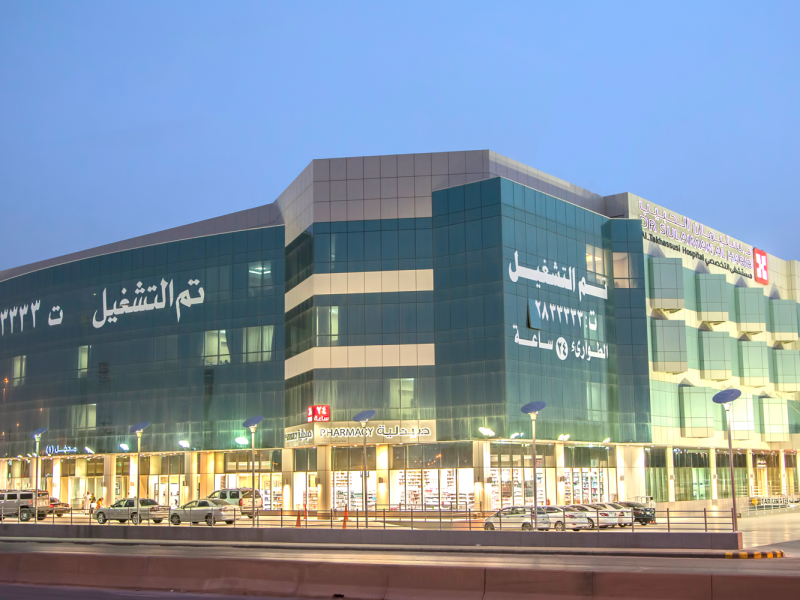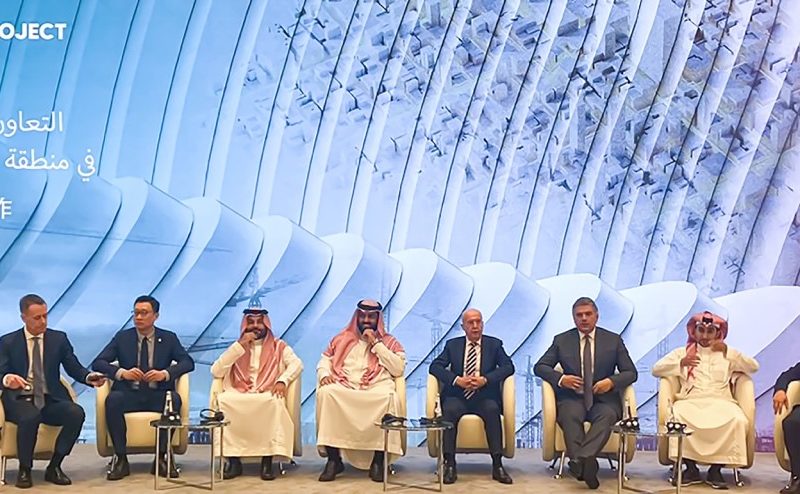Kabbani Construction Group (KCG) is a Saudi Arabian company that has adopted an integrated delivery approach to streamline its construction projects. Construction Week Middle East discussed with KCG the challenges faced by the industry, the benefits of an integrated approach, and the tools employed by the company to achieve its ambitions.
Additionally, the discussion touched on the impact of digitalisation on complex construction projects in the region and the resulting cultural shift towards integration.
An integrated delivery approach has assisted businesses in meeting project specifications throughout the region. How has this approach helped streamline the delivery process for KCG?
Firstly, let us acknowledge that the construction industry is crucial to society, the economy, and the environment, as it is the largest global consumer of resources and raw materials. However, the industry’s productivity and gains have been unimpressive due to several reasons, including a lack of innovation and delayed adoption, informal processes, insufficient consistency in process execution, inadequate knowledge transfer from project to project, weak project monitoring, limited cross-functional cooperation, little collaboration with suppliers, a conservative company culture, and a shortage of young talent and people development.
Many companies, including KCG, face these challenges and more. At KCG, we are working to overcome such challenges with several strategies and approaches, including developing an integrated contracting services delivery approach. We have recognised the following benefits:
- The lines of communication between all parties are clear, allowing us to identify and fix issues long before they arise.
- Frequent requests for information or supplier delays are reduced or eliminated.
- Design clashes are eliminated.
- More speed and flexibility are added to the project, helping ensure on-time delivery.
- Collaboration is increased, and unnecessary duplicated processes are reduced.
- Fewer change orders and RFIs occur as everyone involved in the project comes together in the planning to identify potential problems and find solutions.
How has the integrated approach led to a culture change across project teams?
The cultural change is happening and accelerating as we move towards integration, which is quite significant, especially at KCG, as its business model is based on vertical divisions providing specialised services. We have seen the following benefits:
Better communication: In projects that use traditional delivery methods, the parties involved do not always get a chance to communicate directly with each other, leading to problems. In IPD, communication is direct between stakeholders, eliminating misunderstandings and building better relations.
Increased transparency: Because everyone is working towards one goal and sharing information, the problem of conflicting agendas and hidden costs disappears.
What are some of the tools helping KCG achieve its integrated delivery approach ambitions?
KCG is using several tools to achieve its integrated delivery approach ambitions, including:
- Establishment of a Digital Construction Unit (DCU) to develop and implement new digital construction technologies in engineering and construction, such as 3D scanning, smart buildings, and digital twins, and to develop our current operations to utilise Building Information Modelling (BIM) process and Virtual Design & Construction (VDC).
- Tender management to create a lean process and fully optimise contract (lifetime) value, reducing complexity and increasing collaboration through a more efficient, clearer workflow with assigned roles and responsibilities. The increase in collaboration creates possibilities to leverage the organisation’s product portfolio.
- Implementation of an Enterprise Resources Planning system (ERP) for finance and operations to enhance and digitise the integration of the operational units with the support functions. This changed the culture from resisting change at that time to automation and integration-friendly teams today.
- Establishment of the Total Quality Management department (TQM) to unify the quality standards, changing the culture from avoiding compliance with quality team requirements and audits to more integrating teams today.
- Establishment of the R&D department to maintain development and innovation. Today, operations are entirely integrating with R&D to better deliver the projects.
In Saudi Arabia, as projects become more complex in their design, how will the digitalisation of processes help to ease such situations, and how is KCG making the most out of it?
The operational model of KCG is unique and has been designed and evolved to respond perfectly to the developing market demands. Specialised services have been created to operate under the umbrella of the holding group, IKK.
As buildings and infrastructure become even more complex and require high standards in information management, we are proud to be one of the first few movers towards innovation and digitalisation of our processes. We have achieved this through the following steps:
- Establishment of the Isam Kabbani Energy (IK Energy) unit with a focus on providing sustainable solutions for the built environment, such as solar panels.
- Establishment of the Digital Construction Unit (DCU) to develop and implement new digital construction technologies in engineering and construction, such as 3D scanning, smart buildings, digital twin, and utilising Building Information Modelling (BIM) and Virtual Design & Construction (VDC) processes in our operations.
- Utilising the latest technologies in equipment and vehicles, such as robotic applicators for shotcrete.
- Acquisition of the precast concrete factory, Inshaa, with the intention of developing it to provide modular construction units.
- Ultimately, we will be able to manufacture construction by applying Prefabricated Pre-finished Volumetric Construction units (PPVC) and digitally fabricating many of the building components.





